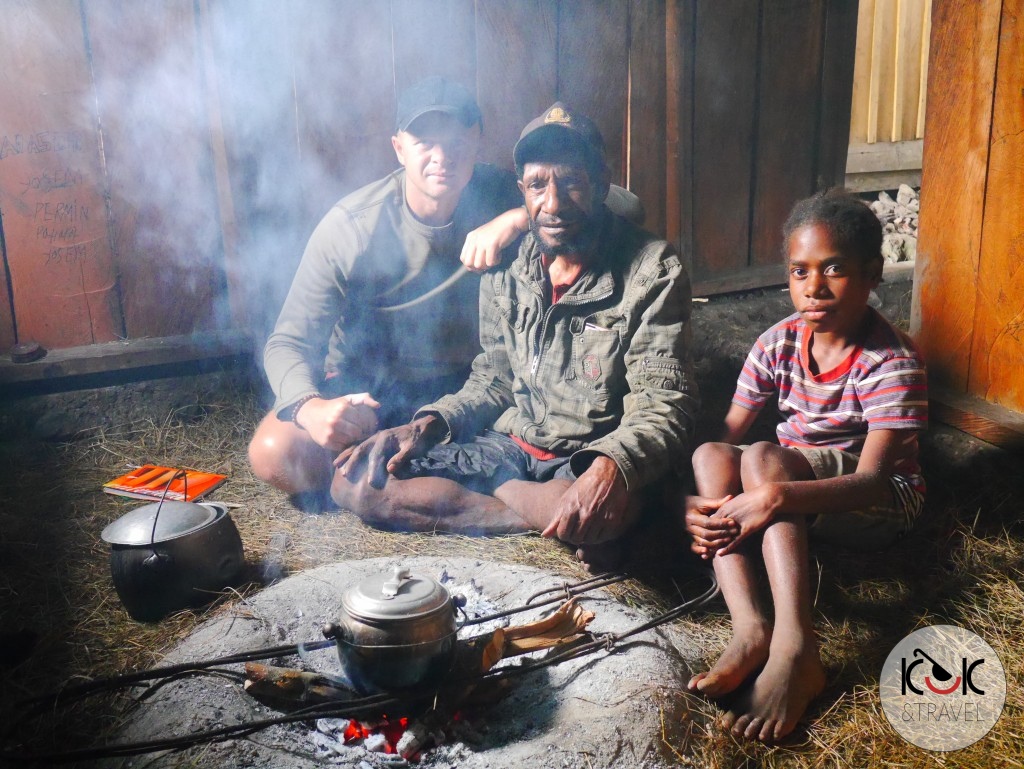
As promised , the following post is devoted to basic Indonesian vocabulary that will be of great use for you if you want to explore West Papua on your own without a guide (the guide could cost you up to 500EUR for 4 days only) and go trekking to villages of Baliem Valley. Bahasa Indonesia is really one of the easiest Asian languages. There are no declinations, it sounds very simple as if there was no grammar at all, and the pronunciation shouldn’t be a problem if you know a little bit of Spanish (for us, Polish people – it’s also very easy).
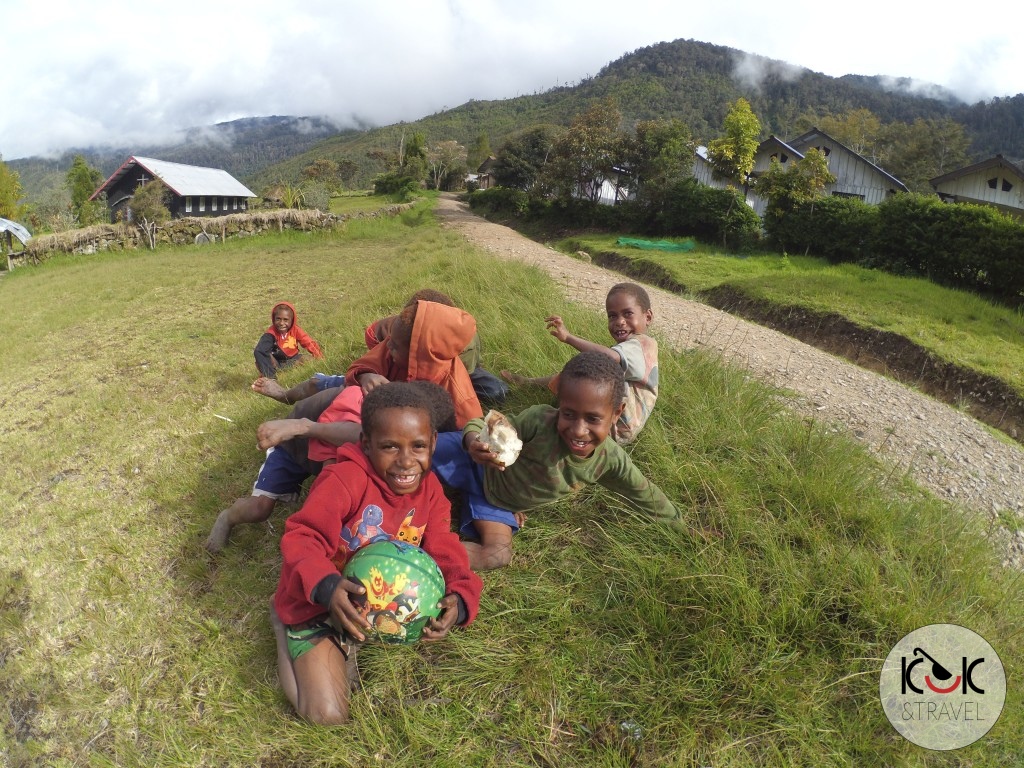
The minimum (about 50 words) you need to know which are the most frequent words that we used during our little ‘expedition’ were:
1.Pagi – Good morning & Sore – Good afternoon/evening
2.Trimakasi – Thank you
3.Tidak – No
4.Ini apa? – What’s this?
5.Berapa? –How much? How much does it cost?
6.Ada buah/sayur/air panas? – Do you have/are there any fruit, vegetables, hot water?
7.Bagaimana jauh ke Hitugi/Yogosem? Satu/dua/tiga jam? – How far (is it) to Hitugi/Yogosem? 1/2/3 hours?
8.Bisa tidur dan makan disini? Ada kamar? – Is it possible/can we sleep and eat here? Is there/do you have a room?
9.Kami mau tidur dan makan disini. Berapa: tidur, makan malam dan makan pagi? – We want to sleep and eat here. How much is accommodation (literally:’sleeping’), dinner and breakfast?
10.Dari mana? – a frequent question addressed to us: Where are you from? The answer: (Kami) dari Polandia. (From Poland/ *you will find a list of more countries further in this post)
11.Kami mau (jalan kaki) ke Hitugi? Kiri? Kanan? Lurus? – We want ( to go by walk) to Hitugi. Left? Right? Straight ahead?
12.Besok kami mau makan pagi 6 jam. – Tomorrow we want breakfast at 6:00.
13.Kami mau kembali disini. – We want to come back here.
14.Di mana angkot ke Kurima – Where (is) the minibus to Kurima?
15.sepuluh ribu – 10.000IDR (this is how much we paid for the first minibus from Kurima, the same amount was a tip to a man from the Dani tribe for taking a photo with him), dua puluh ribu – 20.000IDR (the cost of the second minibus to Kurima)
16.Bagus – great, enak – delicious, besar – big, kecil – small, murah –cheap
17.Saya tidak mengerti – I don’t understand / Aku tahu -I know
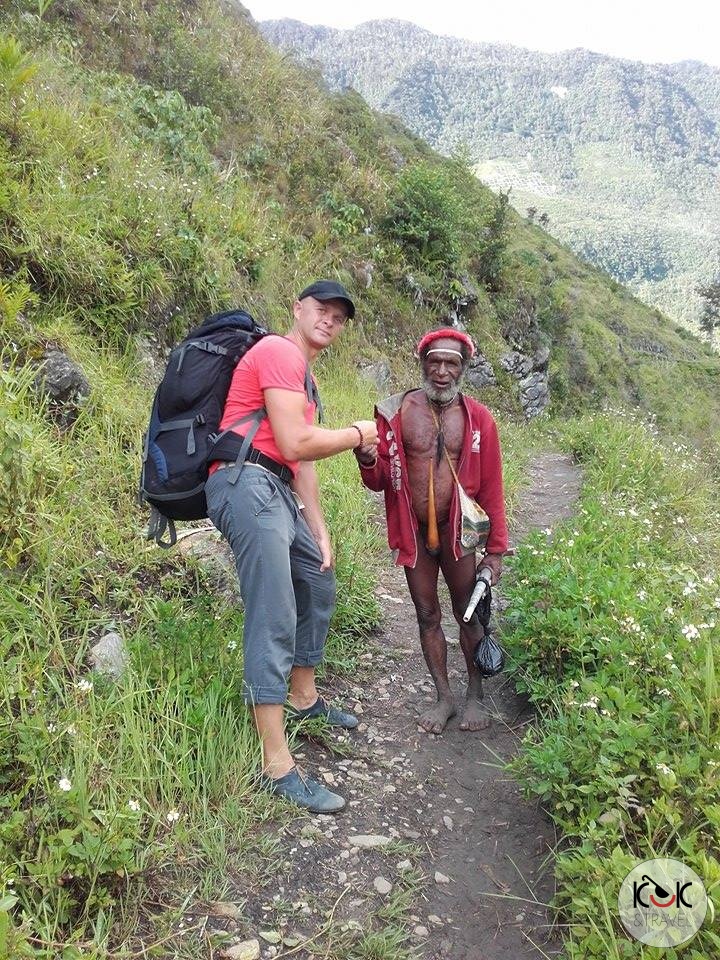
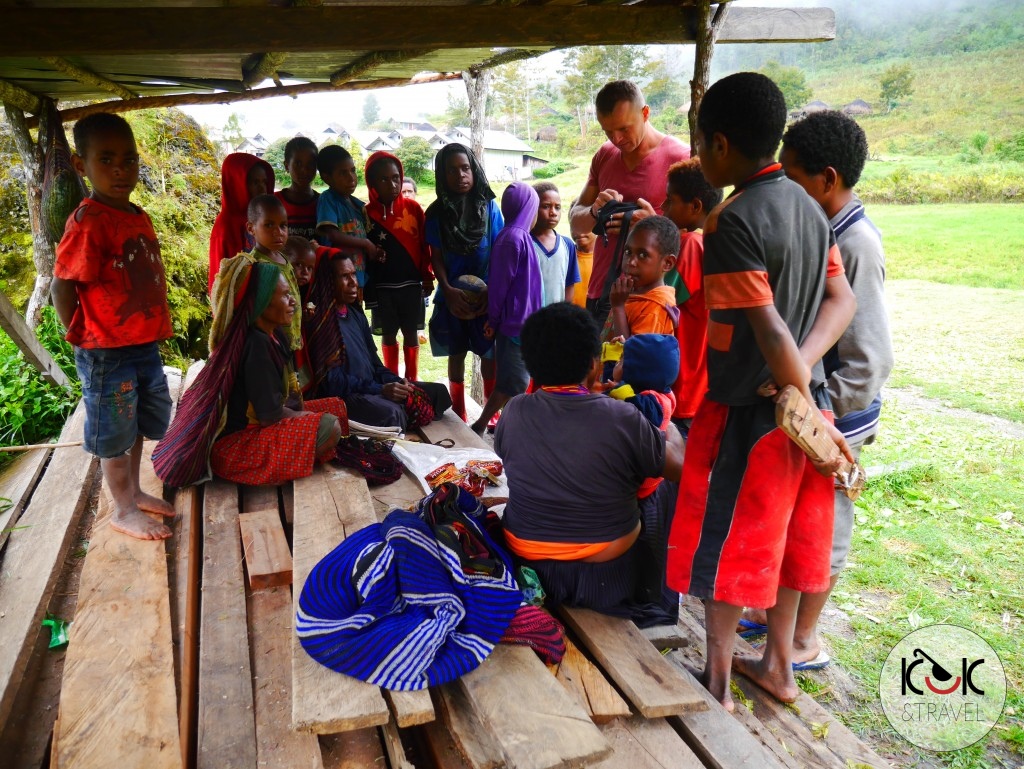
How to pronounce Indonesian words?
If you know a little bit of Spanish, the pronunciation will not be that hard for you. Just bear in mind the following rules:
1) the vowels : ‘u’, ‘a’, ‘e’, ‘i’, ‘o’ should be pronounced the Spanish way so respectively: [u:], [a], [e], [i:], [o]; the vowel ‘y’ should be pronounced as [ɪ] e.g. saya [saia] = I/me
2) letter ‘g’ – always [g], e.g. ‘bagus’ [bagu:s] = great
3)letter ‘j’ [dʒ] – e.g. ‘jalan’ should be read [dʒalan] = street
4)letter ‘w’ [w]; e.g. ‘Wamena’ read [wamena] (the same pronunciation as in English)
5)letter ‘c’ [tʃ] (always read the same way); e.g. ‘kecil’ read [ketʃil]= small
6)leller ‘h’ should be read normally, there’s only one exception – when it stands at the end of a word we don’t pronounce it, e.g. the word ‘murah’ should be read [mu:ra:]= cheap
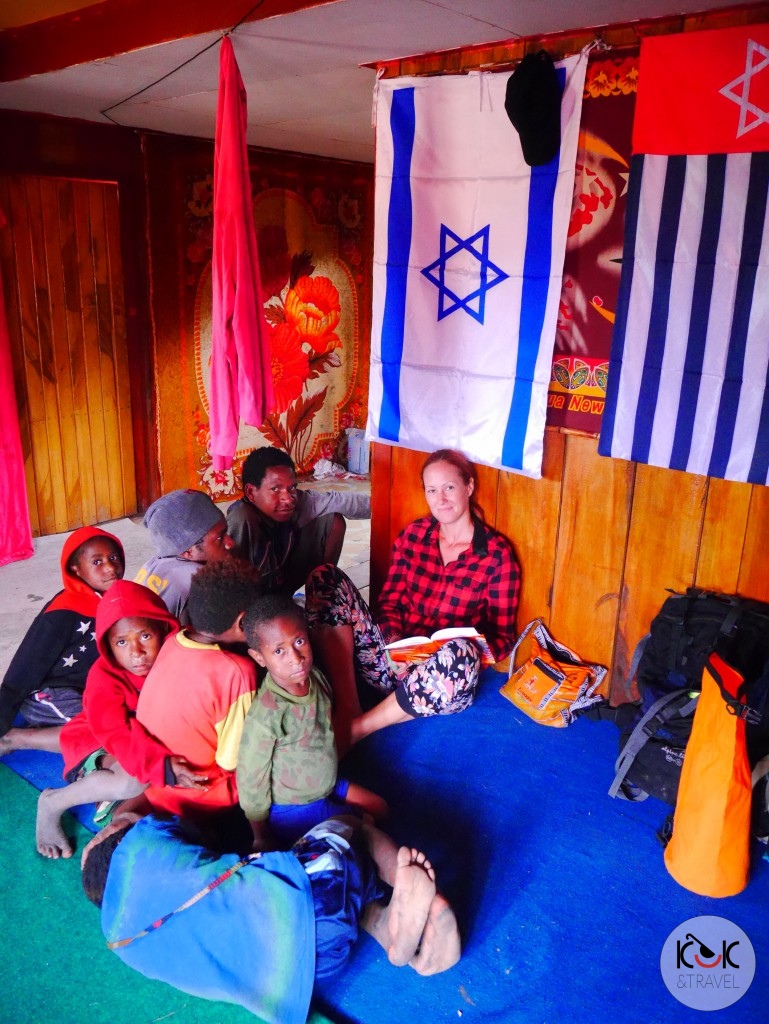

Below you will find a general list of words and expressions/phrases, that we used in the villages, but remember that the vocabulary mentioned above should be enough for a basic communication. If you want to get to know local people closer and get some information related to their culture, ask them some questions regarding their everyday life, the number of people in the village, the number of children going to school, regarding their profession, their families, the age of their children, you can use the vocabulary indicated below 🙂
| Saya – I/me | Kita (including a person we speak to)/Kami (excluding a person we speak to) -we |
| Kamu – you+ Anda – Sir/Madame | Kalian – you (plural) |
| Dia – he, she | Mereka – they |
Selamat pagi – Good morning, they say very often ‘’pagi’’ only
Selamat siang/sore – Good afternoon, saying only ‘‘siang/sore’’
Selamat malam – Good evening/night, saying only ‘’malam’’
Apa kabar? (How are you?) – Kabar baik (I’m fine)
Terima kasih (read: [tri:ma:ka:si:] – Thank you) – Sama Sama(You’re welcome)
Ya – yes =/= tidak – no
Saya dari Polandia – I’m from Poland (literally: ‘Me from Poland’); other countries: Ingrris Raya – Great Britain, Amerika Serikat – USA, Spanyol – Spain, Italia – Italy, Perancis – France, Jerman – Germany, Rusia – Russia
DI MANA? = WHERE?
| Kiri – left =/= kanan (right)
Lurus – straight ahead Dekat – near =/= jau – far Kembali – to come back
|
Belok – to turn
Berhenti disini – stop here! Dari (from) =/= ke (to) Jalan kaki – go on foot |
| Saya mau ke Hitugi – I want(to go/get) to Hitugi. | Berapa jauh dari Wamena? – How far (is it) from Wamena? |
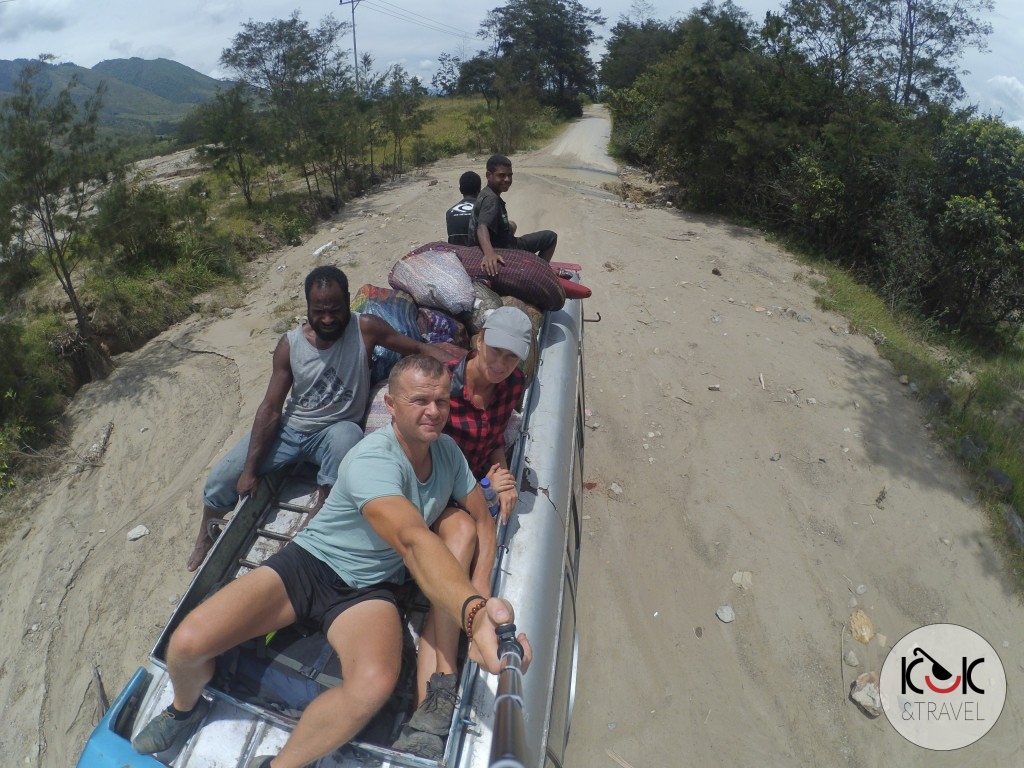
NUMBERS (it’s worth knowing at least some basic ones)
| 1 – satu
2 – dua 3 – tiga 4 – empat 5 – lima 6 – enam 7 – tujuh 8 – delapan 9- sembilan 10 – sepuluh |
11- seblas
12 – dua belas 13- tiga belas 20 – dua puluh 100 – seratus 200 – dua ratus 1000 – seribu 10000 – sepuluh ribu 1mln – satu juta
|
| Harga – price
Berapa (harganya)? – How much (is it)? Mahal – expensive=/=murah (cheap) |
(Mem)beli – to buy
Uang – money Membayar -to pay |

Di mana bisa membeli buah? – Where is it possible/can we buy some furit?
Bisa membeli buah? – Possible to buy some fruit?
Ada buah? – are there/do you have (any) fruit? (literally: ‘is fruit?’)
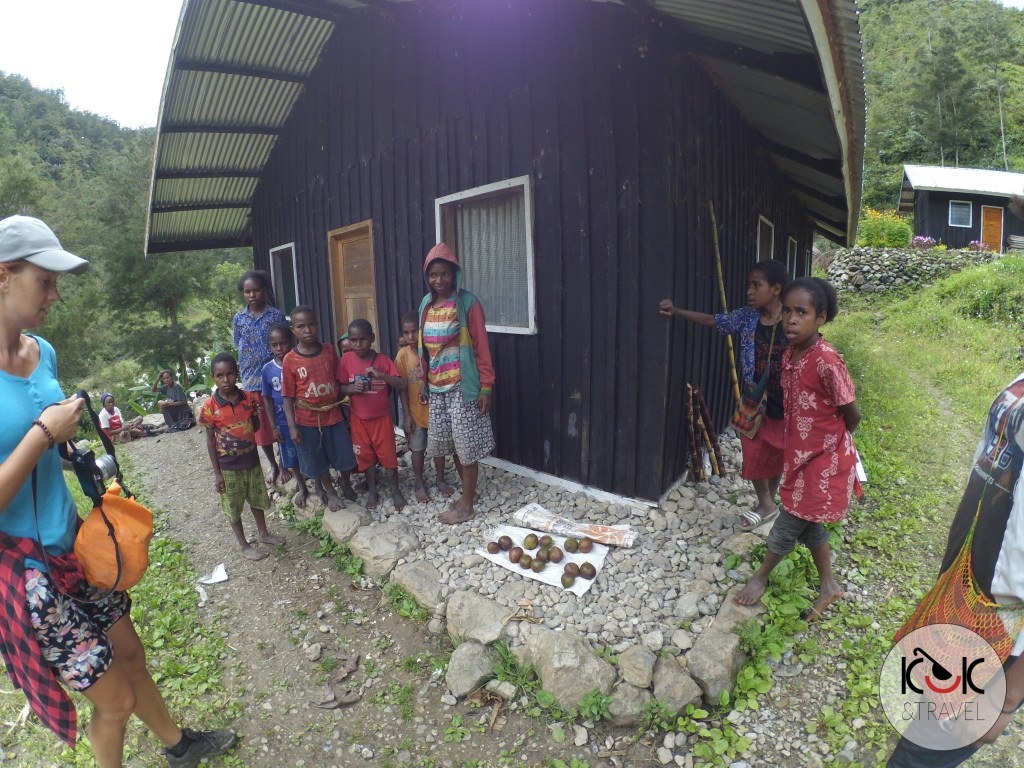
TIME/WHEN: ADJECTVES (opposites):
| hari ini – today
kemarin – yesterday besok – tomorrow malam – night 2 hari – 2 days kemudian – later dini (early) =/= terlambat terdahulu – earlier/before satu jam – 1 hour berapa jam? – what time is it? Kapan? – when? Bagaimana? – how? |
Baik (good, fine, OK) =/= buruk
Miskin (poor) =/= kaya Sedih (sad) =/= senang Lambat (slow) =/=cepat Cantik (beautiful) =/= jelek Dingin (cold) =/= panas Sulit (difficult) =/= mudah Alam (natural) =/= buatan (artificial) Ramah (friendly) =/= tidak ramah Berat ( heavy) =/= ringan Besar (big) =/= kecil Berbahaya (dangerous) =/= selamat |
TIDUR – sleep
MAKAN – food, to eat + MINUM – something to drink, to drink:
| Sendok – spoon
Piring – plate Gelas –glass
|
Makan pagi – breakfast
Makan siang – lunch Makan malam – dinner Saya mau makan/ minum – I want to eat/drink |
| Air putih – mineral water
Air panas – hot water Susu – milk Kopi – coffee Teh – tea Nasi – rise Mie –pasta/noodles |
Ikan – fish
Babi – pig Ketang manis – sweet potatoes Manggi – mango Jagung – corn Buah – fruit Sayur –vegetavles |
| Tidak apa apa! – no problem!
Bagus! – great! Hati-hati! – be careful! Tolong! – help! Maaf – I’m sorry! Maaf sakali! – I’m really sorry! Permisi Pak – Excuse me, Sir Saya jujur – I’m honest (literally: Me honest) |
Selamat jalan! – (Have a) Safe journey!
Buka – open =/=tutup Bisa..? – Can I/we..? Is it possible..? Ini apa? – what’s this? Kalian tinggal disini?- (Do )you live here? Saya tidak tinggal disini – I don’t live here Enak – delicious Saya suka pedas – I like spicy. |
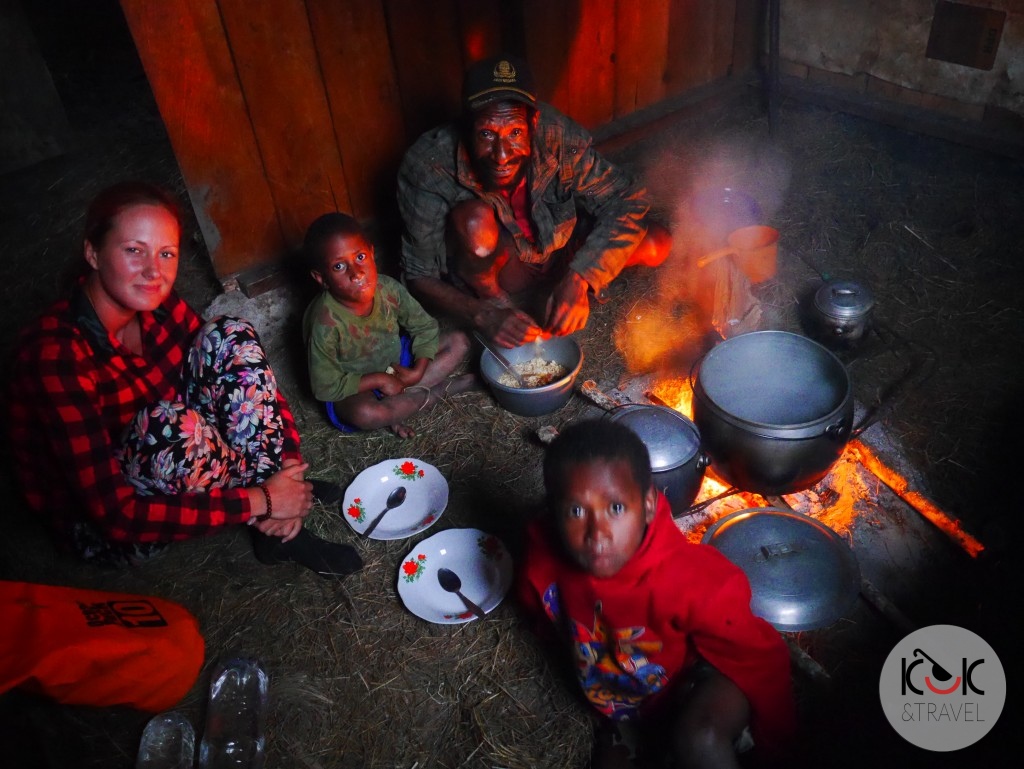
Places: People:
| Sekolah – school
Rumah – house Rumah sakit – hospital Kamar kecil – toilet Toko – shop Kantor – office Pasar – bazaar, market Kota – city Desa – village Bandara –airport Gereja – church Hutan – forest Taman – garden Danau – lake Gunung – mountain Air terjun – waterfall Pulau – island Sungai – river Samudra – ocean Laut – sea Rimba -jungle |
Orang – human being, people
Pria – man Wanita -woman Anak – child Anak laki-laki / anak perempuan – son/ daughter Suami / istri – husband/wife Ibu / ayah – mother/father Keluarga – family Guru bahasa inggris – teacher of English Bankir – banker/bank teller Dokter – doctor Koki – cook Petani – farmer Suku – tribe Wisatawan – traveler Turis – tourist Saya suka orang ini. – I like these people. Berapa orang tinggal disini? – How many people live here? Berapa anak tinggal disini? – How many children live here? Berapa(kah)umur anda? – How old are you? Berapa(kah) umur dia? – How old is he/she? |
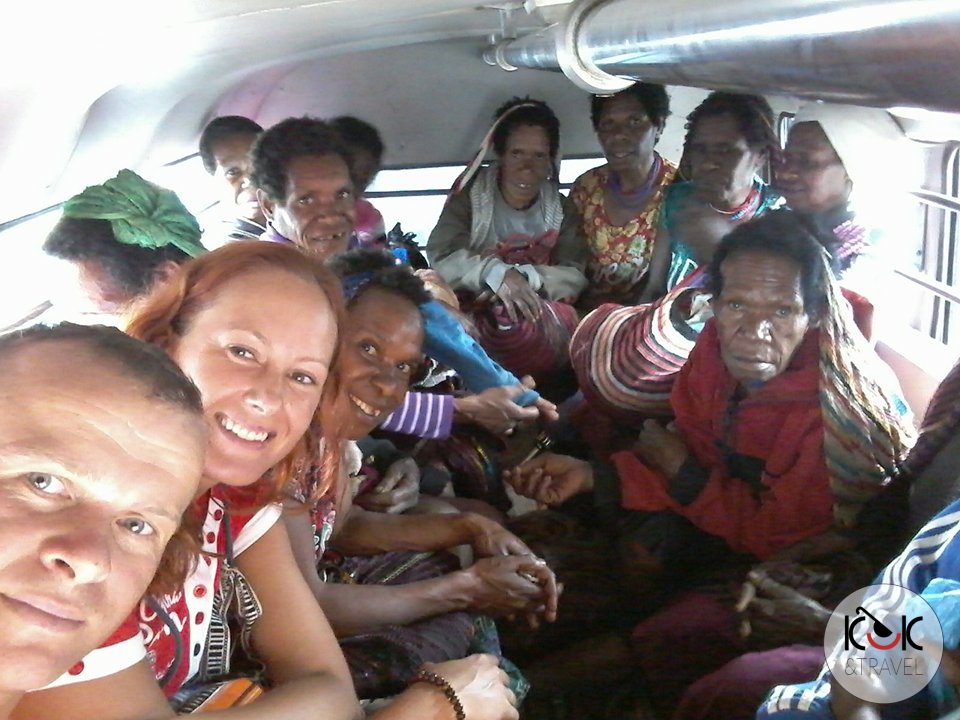
We hope that you find this post useful. If I learned these words in 4 days spending a few hours a day studying them, I assume that you will be able to prepare yourselves even better for this experience planning your journey well in advance. We suggest writing down some notes in a notebook as you will always be able to have a look there when socializing with local people. Don’t count that storing this information on your mobile will be enough as you will not be able to charge your mobile in case it goes dead (unless you carry powerbanks with you:)). Good luck!





rewelacja!!! dziękuję. Lece za miesiąc i już sie zabiaram do roboty
Wspaniale! To była dotychczas nasza największa podróżnicza przygoda spotkać się z Papuasami i móc zamienić z nimi chociażby kilka zdań 😀 Powodzenia w nauce i w podróży! Czekamy na relację 🙂